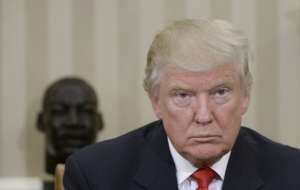Reporter: What are the proposals of the Central Depository concerning the topics on the agenda of tomorrow's General Shareholder Meeting?
Cristian Agalopol: The most important proposals of the Board of Directors are those concerning the development of the infrastructure of the capital market. They concern the new platform, as well as the accession to the Target2 Securities project.
Reporter: What is the position of the Central Depository concerning a possible postponement of the switch to Target2Securities?
Cristian Agalopol: Target2Securities (T2-S) is an extremely complex project, the implications of which must be evaluated very carefully. It implies a certain level of cooperation and we are hoping that, together with the Bucharest Stock Exchange, we will identify the opportune moment for joining this platform. One of the preconditions for joining is the standardization of corporate messages and events. I believe that, by fulfilling this requirement, the Romanian stock market can solve some of its existing problems that have kept foreign investors away from us.
Reporter: What are the proposals of the Central Depository concerning the agenda of tomorrow's General Shareholder Meeting?
Cristian Agalopol: The most important proposals of the Board of Directors of the Central Depository concern the development of the stock market infrastructure. These concern the new platform, as well as the European Target2 Securities project.
Reporter: What is the opinion of the Central Depository concerning a potential postponement of the migration to Target2Securities?
Cristian Agalopol: Target2Securities (T2-S) is an extremely complex project, the implications of which must be evaluated very carefully. It involves a certain level of cooperation and we are hoping that, together with the Bucharest Stock Exchange, we will uncover the opportune moment for joining this platform.
One of the preconditions for joining is the standardization of corporate messages and events. I believe that, by fulfilling this requirement, the Romanian stock market can solve some of its existing problems that have kept foreign investors away from us.
Reporter: What potential costs does a potential postponement of the T2-S involve?
Cristian Agalopol: Unfortunately, there is the risk of incurring certain costs if the postponement were to occur. Taking into account the complexity of the whole project, I think that it is premature to start making estimates about the costs of a potential postponement.
Reporter: What proposal does the Central Depository have concerning the selection of an IT provider? What have the selection criteria been? How would you comment on the fact that Ludwik Sobolewski has asked for another bid to be requested, after the completion of the selection by the Central Depository?
Cristian Agalopol: Until such time as the entire process is completed and the contract is signed, we are required not to disclose details concerning the criteria, the process in itself or the offers being reviewed. Considering the experience of Mr. Sobolewski when it comes to the stock market, as well as the good cooperation between the two institutions, any suggestions from him are welcome and reviewed carefully by the Central Depository. These suggestions have been taken under consideration, and in the General Shareholder Meeting of the Shareholders of the Central Depository, the Board of Directors will make a proposal to the shareholders concerning the new platform. As the European and international environment are dominated by radical changes in the post-trading area, the stock market in Romania is in a critical situation. Any delay of in the making of a decision concerning the approval of a set of a measures to improve the mechanisms for controlling existing risks can cause the stock market to become isolated from the other European markets.
Reporter: Can you give us an overview of the projects of the Central Depository implemented between February 2011- February 2014?
Cristian Agalopol: They are quite many, but I will try to briefly mention some of the most important.
For the first time on the Romanian stock market, customers will benefit from a complex service of borrowing securities, which is based on a recognized contractual framework used in the international practices - Global Master Securities Lending Agreement - adapted to the Romanian legislation.
We have improved the RoClear system by extending the functions of the RoClear Connect online interface with the ones concerning the borrowing of the securities. The National Bank has been admitted in the system of the Central Depository, as a member of the RoClear system.
Over the course of last year, the Central Depository has successfully extended the implementation of the nominee accounts to the first Romanian stocks. The technical and procedural framework for the expansion of the nominee accounts and of the mechanism without prevalidation to all the securities registered in the Roclear system managed by the Central Depository. The RoClear system offers facilities for reporting holders and also of performing the daily reconciliation.
Also, by signing the framework contract for joining TargetSecurities, Romania will be among the first financial markets in Europe that will implement the new standard settlement regulations and will use the most advanced and safest settlement platform in Europe.
Furthermore, the Central Depository has made available to investors a new method for the payment of dividends, namely the payment through the account of the brokerage firm. This is a new service that simplifies the payment of dividends and reduces costs.
The Central Depository is a member of SWIFT and will make available to the Romanian stock market a new settlement infrastructure which uses the SWIFT network.
The Board of Directors has approved the amendment and the completion of the provisions of the Code of the Central Depository concerning the settlement of OTC "turnaround" trades.
The Board of Directors has also established initiatives for cutting costs, as well as increasing the revenues of the Central Depository. When it comes to the cost cutting initiatives I can tell you that we have reduced the space rented by the Central Depository by almost 15%, and the staff of the institution has been cut by 15%. All of these initiatives have produced significant savings for the BVB group.
Reporter: Ludwik Sobolewki said that there have been some problems with the corporate governance of the Depository. What do you think he was referring to? How would you respond to that?
Cristian Agalopol: I would not define them as problems. I think that the existence of diverging opinions is natural, and I would dare say, even welcome in a corporation, especially when we are talking about large scale projects. From my point of view, there are no communication breaches between the BSE and the Central Depository, like I have already said. We are in an ongoing dialog with Mr. Sobolewski and with the board of the BSE, and everyone's opinions are discussed and evaluated carefully, as they are subordinated to the common objective of the two institutions, namely the development of the stock market. Personally, I believe in dialog and in the need to have differing opinions, because it is out of and through diversity that the best ideas are born.
Reporter: How would you describe the relationship with the majority shareholder (the BSE)?
Cristian Agalopol: In terms of our common objectives, the Depository is constantly cooperating with the Bucharest Stock Exchange in order to achieve them. When two players set the same goals for themselves, then the relationship between them can only be productive. Our priority is to meet the requirements for Romania to move up to the emerging market status. Investors want better access, effectiveness and flexibility. I think that a healthy approach begins with a healthy long term strategy. We need a clear strategy that gets embraced by all of the institutions of the stock market. Without a clear strategy and a clearly defined direction it is very difficult to prioritize projects and to allocate resources.
Reporter: Are there any intentions from foreign/domestic investors to acquire the Central Depository?
Cristian Agalopol: Not as far as I know.
Reporter: How would you comment on the report of the ASF on the Central Depository, in the case of Harinvest?
Cristian Agalopol: The intention of the Central Depository is to dispute the final report of the ASF on the Harinvest case. Through this challenge, we first of all want to clarify the role and the responsibilities of the Central Depository. We are not shying away from responsibility and we are not in any way trying to pass the blame. We do feel, however, that there are uncertainties when it comes to the limits of the responsibilities as stipulated by the law and the Code of the Depository which have prevented the clear and complete understanding of what could have really been done. Special sell-out operations do not represent regular trading activity within the meaning of the applicable regime of the law, but instead they are operations for managing the risk of trades not being settled stipulated in the Code of the Central Depository, which are intended to obtain funds to cover the net debtor position of a brokerage firm. We have followed the activity of that brokerage firm and the trades it has been conducting since 2012, and the Board of Directors has referred the matter to itself and has used all of the means of action it had available, which were used with celerity and responsibly.
Of course, what's done is done and the current talks can not alleviate the investors' anger at having lost their savings. What happened is absolutely regrettable and I think that it is very important to separate the responsibilities, precisely to take the correct measures and to avoid such situations in the future.
Reporter: What internal measures were taken at the Central Depository, following the Harinvest scandal and the thefts of shares?
Cristian Agalopol: The Board of Directors of the Central Depository has zero tolerance when it comes to the market participants that do not comply with the Code of the Central Depository and the regulations in effect, as well as when it comes to the employees of the institution that do not carry out the duties they have based on their job descriptions. Harinvest is an important lesson for us and for the Romanian stock market. Unfortunately, it is a costly lesson. I repeat: we are very carefully reviewing everything that has happened to avoid that kind of trouble in the future. But until we are all on the same page on what the role of the Depository is, we can't go further. For that kind of situations to stop happening, urgent changes are needed, and some of them I have mentioned earlier.
Reporter: What do you think is the role of the Central Depository in the development of the capital market?
Cristian Agalopol: The latest financial crisis has proved that, in the absence of risk management, the financial innovations can cause the instability of the financial system. Today, when the markets have recouped the losses from the period of the crisis, the business models for the development of the capital markets are revolving around the infrastructure projects intended to reduce risks and technological errors. This fact is due, for the most part, to the high volatility, as well as to the flurry of revisions of the European regulations.
The infrastructure of the financial markets has become the main engine of promoting the competitiveness and efficiency of the markets. The reforms which were begun on many European markets will generate substantial changes of the global financial landscape. Paradoxically, the projects for the infrastructure of the capital market were promoted predominantly by governments and European regulators, and less by the financial markets.
In the context of an extremely dynamic financial environment, the Central Depository must show flexibility and adaptability to the changes of regulations and to the global trends, meaning to adjust its priorities. Every step must pursue the reaching of our end goal: the modernization of the market architecture to offer competitive services and to meet the emerging market requirements. This is the most important role of the Central Depository. We have the opportunity to turn the system of the Central Depository into a settlement system for the 21st century and I can tell you that we have already made progress in that regard.
Reporter: You have announced in the beginning of the year, that turnaround trades have seen a significant increase, but last year the ASF has implemented a promotion for fees. How did the turnaround trades perform once the ASF dropped the promotion? How do you feel about the fact that the ASF has announced a new discount for fees, but only for six months?
Cristian Agalopol: The turnaround trades have brought into the market in the last 8-9 months of 2013 investments of over 400 million dollars. These figures are real, and if the stock market last year had one of the best recent years, this was for the most part the merit of turnaround trades as well. Unfortunately, in the first months of this year, the instability of the fee structure has slowed down trading in that segment quite a lot, which then impacted the daily turnover traded on the BSE. I think that any measure concerning the level of fees needs to be looked at from the investors' point of view, namely of those at whom they are aimed. We all know that markets and investors love predictability. Starting off from that reality, I think that his kind of measures, regardless of how well intentioned they may be, they do not meet the predictability requirements that investors are looking for when assessing and comparing the trading costs on certain markets. The Romanian stock market needs far more consistent, cohesive and longer lasting measures, to progress towards the emerging market status. And I think that this is what investors expect from us.
Reporter: You have recently been elected on the Board of Directors of AmCham. What will your goals be in that position?
Cristian Agalopol: I am honored by the faith placed in me by the members of AmCham through this choice. AmCham is one of the key organizations in the Romanian economic landscape, both through its force as an institution, as well as through its members' expertise and the dedication with which they support positive changes of the Romanian business sector. As a member of the Board of Directors of AmCham I will have an ability to contribute through this platform as well to the modernization of the Romanian stock market. One of the personal objectives is that of improving the dialog between the players on the domestic market and the decision makers. Furthermore, based on my professional experience, I am open to support the agenda of AmCham in other areas such as insurance, healthcare, taxation, in order to bring added value to the business sector and finally, to the Romanian economy overall.
Reporter: What do you think are the main obstacles that prevent foreign investors from coming to Romania?
Cristian Agalopol: The best way to predict the future is to create it. A complete redesign of the market architecture to reduce costs and risks and to facilitate the access of international investors to this market is vital. The study presented in the beginning of this year concerning the barriers on the capital market is a good start. Over the last 10 years, the missed opportunities on this market have come back to bite us, and this fact has unavoidably led to a drop in liquidity and to becoming separated from the institutional investors. The stop-and-go policy when it comes to the improvement of the local architecture has left its mark, by keeping the capital market captive to the "frontier market"
What are the solutions? I think that a healthy approach starts from a long term strategy, embraced and taken on by all the institutions of the stock market. Stability and predictability are the most important characteristics of a viable stock market. Without them there is no confidence, the ingredient without which no market can fulfill its potential.
A strategy, no matter how good it can be, must be followed by a discipline in its execution, precisely to offer predictability. What the Romanian capital market did not have until now was discipline, consistency and coherence in execution. It's not "know-how" we need, but discipline and continuity. The belief that promises must be honored. In the spirit of this idea and of the need for strategy, separating trading and post-trading and the replacement of the IT platform of the Central Depository are two essential projects for improving the trading and settlement processes, as well as for reducing the previously mentioned risks. But, for these projects to be completed, what is needed is the taking on of a greater responsibility. Both the Board of Directors of the BSE as well as that of the Central Depository understand the importance of the projects needed for the modernization of the stock market and I think that given their implications, they are directly interested in the allocation of the resources needed for their completion.
The need for an institution that plays the role of a central counterparty has become a priority for the Romanian market, both due to the requirements of EMIR (European Market Infrastructure Regulation), as well because of the need to increase liquidity. A central counterparty, that would also cover the spot market, would unlock the potential of the entire chain of international brokers, substituting the low risk rating of domestic brokers with the credit risk of the CCP. I think that a Central Counterparty that would pivot around the National Bank of Romania will bring increased confidence in the Romanian capital market. I want to see this central counterparty, if possible, built around the National Bank of Romania.
Reporter: Are foreign investors concerned about the political instability/unpredictability of the government decisions?
Cristian Agalopol: I've said it before and I am going to repeat it. There is no science involved in this: stability and predictability are essential to any foreign investor. Romania, in general, and the stock market in particular, can't grow outside them. Investors want to see a schedule of clear, cohesive measures, with deadlines that are taken on and honored, that would offer them the guarantee of a minimum of continuity. These are platitudes, but behind them are simple, mathematical considerations. We've been saying this for two decades because things have not been followed through. We are the country where things get done halfway. Confidence is built in years, but it can be lost in a day. We need to learn to be disciplined and serious both in the major projects as well as in those of a smaller scale. That is the only way we are going to win the investors' confidence.
Reporter: From your position of president of the Central Depository and member on the Board of AmCham, what is your opinion on the arrest of the president of the ASF, Dan Radu Ruşanu?
Cristian Agalopol: No comment. What I can say, however, is that the stock market just like any other areas, needs institutions (with a capital I). Institutions are the basic pillar because they offer the guarantee that regardless of who leads them, things go on.



























































